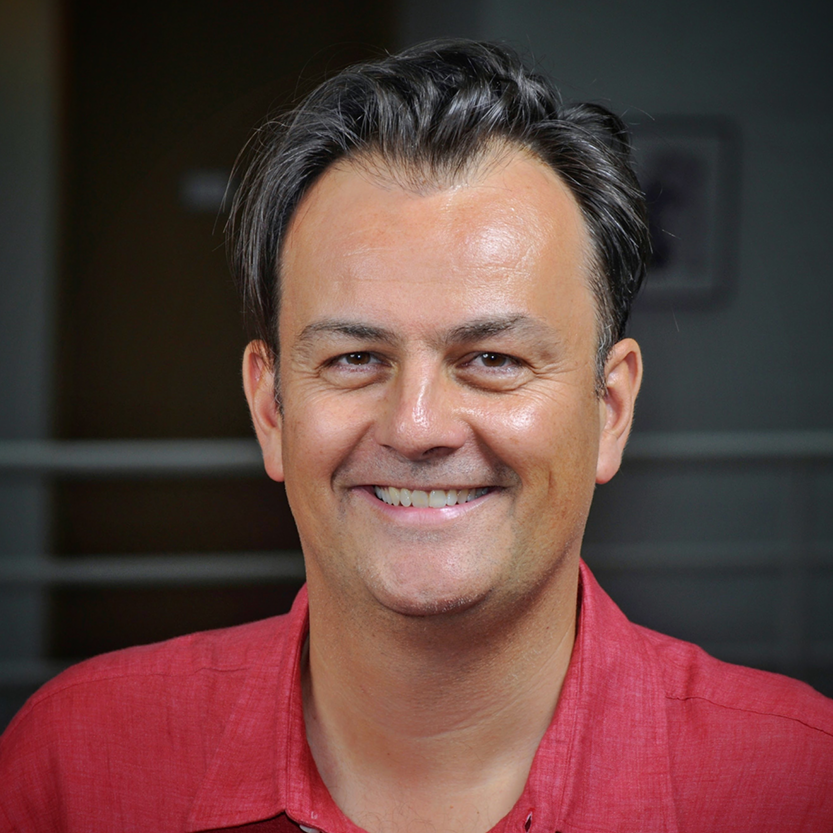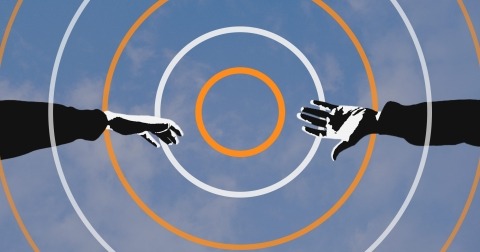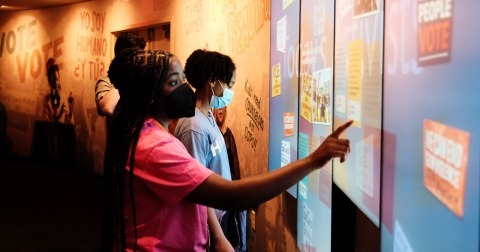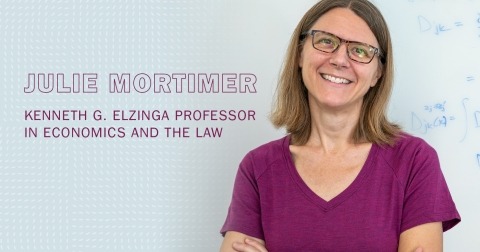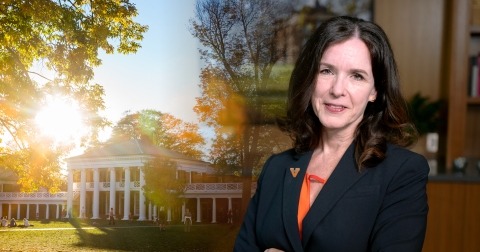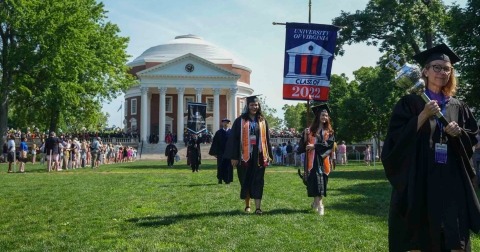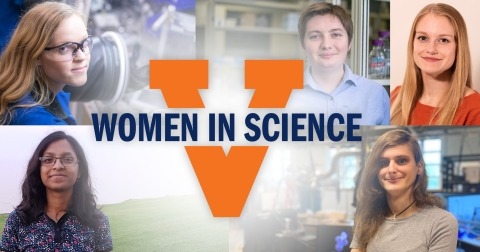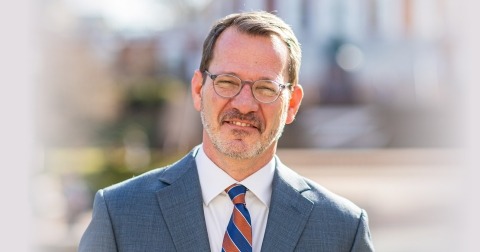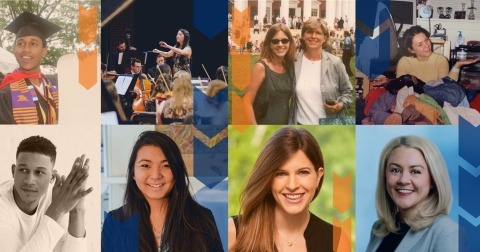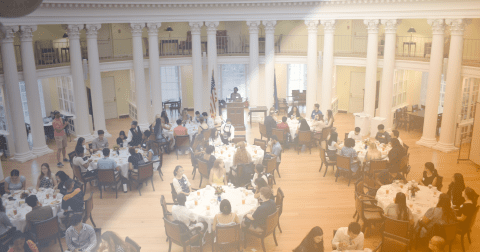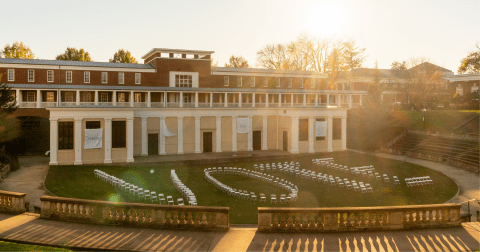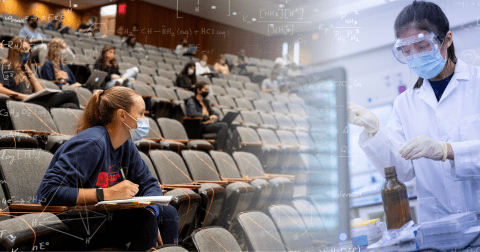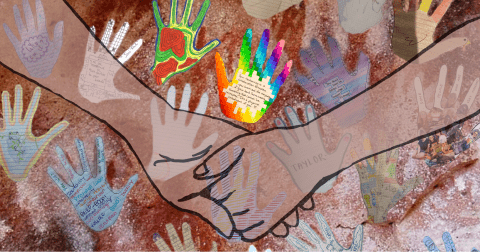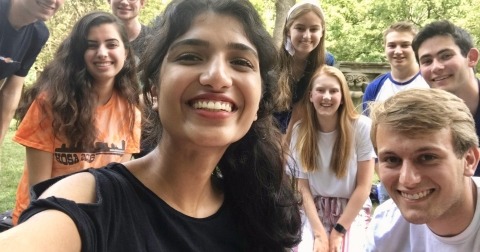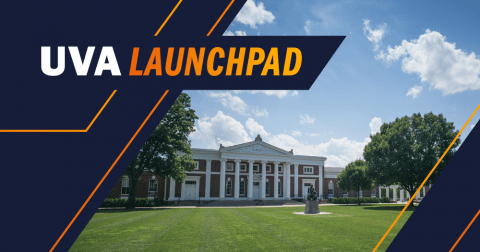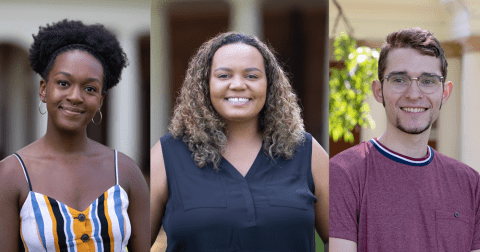The University of Virginia was established on Thomas Jefferson’s belief that an educated citizenry is vital to the success of democracy. Fast forward 200 years, and we find the idea and the experiment of democracy under stress in the United States and throughout the world.
Important questions, old and new, need answers.
How do government institutions remain functional, trustworthy and effective? And what happens if they break down?
How is social media changing the landscape of our democracy?
How does income inequality influence the way we vote, act and live — and what can a democratic society do to more fully embody the Declaration of Independence truth — that all are created equal?
These are some of the animating questions that UVA’s Democracy Initiative has been working on since it was established two years ago, and with the appointment of Laurent Dubois as the Initiative’s new Co-Director for Academic Affairs, the project is poised to increase its momentum.
Formally launched in 2018 as a venture of the College and Graduate School of Arts & Sciences in collaboration with schools and academic units across UVA, including support from the Miller Center of Public Affairs, the Democracy Initiative is bringing the strength of the University’s scholarship to the critical issues facing democracies around the world. Pending final approval from the University’s Board of Visitors, Dubois will partner with Melody C. Barnes, the Initiative's Co-Director for Policy and Public Affairs, in providing leadership to shape the project’s continuing development and direction.
We sat down with Barnes and Dubois to learn more about the direction of the Initiative, how the arrival of Dubois will inform research and teaching, and how alumni and students can participate — all in light of last month’s historic election.
Q: This year’s presidential election has generated the largest voter turnout in decades. At a time when people are so politically engaged, democracy is facing a range of challenges, including intense polarization in many societies. What is the Democracy Initiative’s role in finding common ground and promoting civil discourse?
Barnes: The first thing we have to do is model it — to model tolerance and pluralism and civil, robust engagement. We've brought a variety of distinguished speakers to Grounds to share different perspectives on issues, and we’re having challenging conversations. We’ve heard from students that they want more of this, and we want the Democracy Initiative to continue to provide spaces for it.
 We can all benefit from engaging across difference — with people who don't come from where we come from, who may not believe what we believe — actively listening and debating. Perhaps, it makes us uncomfortable. Maybe it changes our minds, maybe it affirms our beliefs. But we have to be able to engage with people in a thoughtful way that isn't destructive.
We can all benefit from engaging across difference — with people who don't come from where we come from, who may not believe what we believe — actively listening and debating. Perhaps, it makes us uncomfortable. Maybe it changes our minds, maybe it affirms our beliefs. But we have to be able to engage with people in a thoughtful way that isn't destructive.
Dubois: I love the idea of modeling it. I’m coming to UVA from Duke University, where I created a project called the Forum for Scholars & Publics that worked to host these types of conversations where difficult questions were debated in a respectful way, and audiences felt heard and included. That’s actually a real challenge to do, but it serves as a great incubator and model — the more people do it, the more they think civil discourse is possible. And that’s important. We can practice it and build on it.
Democracy demands a lot of its citizens. It forces people to be in discussion, to develop arguments. You don’t have to agree, but you do have to come back with a better argument, and that’s hard work. And having a historical perspective helps. This is an extremely intense moment we’re living in, but there have been lots of similar moments in the history of the modern world, and exploring those is really interesting and inspiring. Ultimately, in a university context, and as a historian myself, I know you can learn from the past, apply it to today and grow from there.
Q: It’s been two years since the Democracy Initiative first launched. What areas of impact would you highlight at this point?
Barnes: One of the reasons I’m excited to do this work at UVA is the opportunity to have a real impact. And the Initiative has created a considerable body of work in a short amount of time.
First, on a foundational level, we’re fostering a new culture of cross-disciplinary collaboration through our “Democracy Labs.” The Labs are extremely important to the research component of what we do. They require talented faculty, graduate students and undergraduates from different disciplines to work together. It’s not about taking on a big topic and then having lots of people work on individual aspects of it by themselves; it’s a deliberate way to bring expert faculty and students together for an extended period of time to approach a big question from different perspectives, working in concert to further the scholarship and advance knowledge.
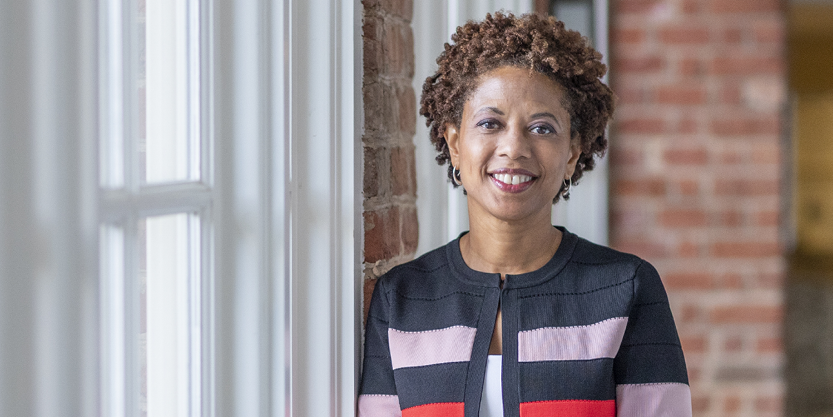 Melody Barnes is co-director for policy and public affairs at UVA's Democracy Initiative.
Melody Barnes is co-director for policy and public affairs at UVA's Democracy Initiative.
Looking deeper inside the work of our four existing Democracy Labs, for example, I’d underscore a few key things we’re seeing — various facets of research, teaching, engagement and public affairs work coming together to make a meaningful difference. Our inaugural lab, the Religion, Race and Democracy Lab, has been giving grants to undergraduate and graduate students, and they’ve produced a portfolio of audio and documentary film work on big questions that are important to democracy. We also have an anti-corruption lab [the Corruption Laboratory for Ethics, Accountability and the Rule of Law] that is focusing on the pandemic relief resources that Congress appropriated earlier this year. They'll make their work publicly available to journalists, policy-makers and the public. The Deliberative Media Lab launched a popular podcast, “Democracy in Danger,” and a January Term course will be built on that work. Similarly, the Democratic Statecraft Lab is bringing some of the country’s top experts to our (digital) community and animating debate across the ideological spectrum.
In response to the crisis, we launched the “Democracy and the Pandemic Series.” After outreach to faculty across Grounds and partnering with the Equity Center to engage community voices, op-eds were published in over 20 media outlets across the country — providing vital context, research and information to a public seeking facts and reliable analysis.
Dubois: I’ve admired from afar how the Initiative has engaged undergraduate students on the big questions of democracy, democratic culture and democratic practice. I deeply respect the significant amount of time the Initiative’s team members are spending with students, asking what is most important to them, and I learned that out of these conversations, the Democracy Initiative’s Student Advisory Council was born. I’ve had the chance to meet these students, and they bring such great energy and so many perspectives to the question of what it means to participate in a democracy, starting with engaging with UVA as a community and an institution.
Barnes: Exactly. And watching them draw their peers into the conversation during this political season and support student voting was really incredible. Students can also take our democracy-focused Forums courses to connect directly to our work in the classroom.
Students gather in the UVA Amphitheater using COVID protocols for the presidential debate watch party sponsored by the Democracy Initiative (October 2020).
Q: What’s next for the Initiative? And how does Laurent’s experience and expertise factor in to that?
Barnes: Having Laurent join the Democracy Initiative at UVA? Best. News. Ever.
Dubois: When I first accepted the position, Melody kindly wrote me an email with those exact three words. So, we’re not only getting along great as colleagues and co-directors, we share a love for one-word sentences.
Barnes: Laurent’s experience is exactly what we need, and he’s the perfect counterbalance to my background. I've spent 25 years in public policy working in Congress and in the White House. What I am not is a scholar with a Ph.D. But I believe in the importance of the academy. I saw it when I was working on Capitol Hill and when I was director of the White House Domestic Policy Council; we benefitted from scholarly work that experts like Laurent brought to the table. Again, the title of the podcast produced by our Deliberative Media Lab says it, well: "Democracy in Danger." Indeed, we need to put the resources of the University into the public sphere, and to shape debates and agendas with facts and expertise. This is the time for robust thinking and action.
|
Dubois: I’ll be in conversation with Melody, and she’ll apply her White House knowledge to a situation, so I have this awe of her experience and what that she brings to the work at UVA. As I begin in my role on the academic affairs side, one of my most important tasks is to stand up the John L. Nau III Lab on the History and Principles of Democracy. Simply put, the Nau Lab will act as the “Core Lab” for the Initiative, like the hub in a hub-and-spoke model. The other Democracy Labs will rotate — they’ll move in and out and bring collaborators together for a certain time. But the Nau Lab will be evergreen. It will be an ongoing place where essential questions about democracy can be discussed, debated and explored. |
The goal is to make the Nau Lab a kind of nerve center for the Initiative, catalyzing key questions, helping to shape long-term research agendas, and serving as a permanent forum for gatherings and conversations. We’ll work to create a vibrant space where democracy’s deep, complex and global history, the many streams of thought that have shaped it, and its current shape and challenges, can all be explored by a wide range of faculty and students at UVA along with guests from around the country and the world. And I’m committed to making sure, as we work through these questions, that we make our work public-facing so it's accessible and useable.
Q: How can alumni help support the efforts of the Democracy Initiative?
Barnes: UVA alumni are already contributing in significant ways, and we certainly welcome more alumni help and input. The fact that we’re launching the Nau Lab on the History and Principles of Democracy is “Exhibit A.” Alumni are supporting the work with generosity and vision. In addition to the Nau Foundation’s generous gift, many alumni have come together to support the Initiative — allowing us to do everything from hiring new faculty and post-doctoral researchers to partnering on new efforts aimed to benefit undergraduate students — like the Student Advisory Council.
And then there are so many new ideas we can explore. We’d love alumni support for things like the UVA Democracy Biennial, and a book-writing fellowship on issues of democracy. It would be great if we could start a practitioner fellows in-residence program — attracting distinguished practitioners to UVA to collaboratively work with our faculty scholars and students on ideas and then quickly get those ideas out into the public sphere.


